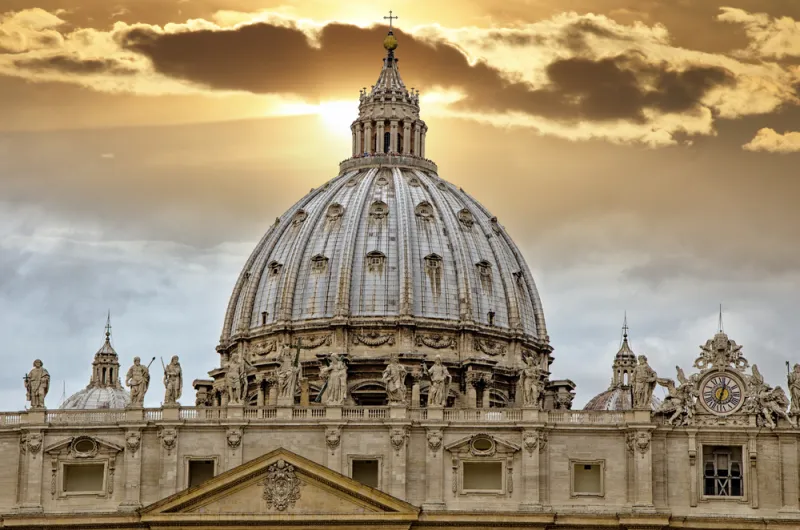
St. Louis, Mo., Nov 30, 2022 / 14:00 pm (CNA).
A Vatican spokesman said Wednesday that the Holy See has taken down its main vatican.va website amid an apparent attempt to hack the site.
“Technical investigations are ongoing due to abnormal attempts to access the site,” Vatican spokesman Matteo Bruni told Reuters Nov. 30, without elaboration.
Numerous users online noted that the site was unavailable as of Tuesday morning. Among other things, vatican.va is the official online repository for papal encyclicals.
As of Wednesday afternoon in the United States, attempts by CNA to access the vatican.va website from several different web browsers produced “404” error messages. Ancillary websites, such as press.vatican.va, were still online as of Wednesday.
The perpetrator and motives of the alleged hacker or hackers in this case remain unclear, though there is precedent for hacking groups targeting the Vatican because of public statements made by Pope Francis. For example, in 2015, a Turkish hacker took credit for hacking the Vatican’s website because Pope Francis referred in a homily to the 1915 mass killings of Armenians by Turks as a “genocide.”
In the present case, the apparent attack comes a day after Russian leaders criticized Pope Francis for comments he made about Russia’s war in Ukraine in a recent interview. In the interview, the pope described Ukraine as a “martyred people” and singled out two Russian ethnic minorities — Chechens and Buryati — as “generally the cruelest” in the conflict.
The Vatican’s aging main website has attracted other hackers, too. In 2012, the Italian branch of the activist hacking group Anonymous took down the Vatican’s website using a simple “denial of service” hacking method, whereby the site was artificially flooded with traffic in an attempt to overload it.
More recently, in 2020, Chinese state-sponsored hackers reportedly targeted Vatican computer networks and other Catholic targets in an attempt to give China an advantage in negotiations at that time to renew a provisional deal with the Holy See.
Experts have accused Russia of using hacking, cyberwarfare, and disinformation in its present conflict with Ukraine, and in addition, Russia has a history of targeting Catholic entities with its hacks. In 2018, reports emerged that Russian hackers had infiltrated the email inboxes of Orthodox, Catholic, and other religious leaders connected to Ukraine.
Courtney Mares contributed to this story.
If you value the news and views Catholic World Report provides, please consider donating to support our efforts. Your contribution will help us continue to make CWR available to all readers worldwide for free, without a subscription. Thank you for your generosity!
Click here for more information on donating to CWR. Click here to sign up for our newsletter.





For some years before COVID the VATICAN.VA website hyperlink, once pressed, would go through a loop or double-cycle to reach to the point of opening the main page. This feature has disappeared and the link opens to the main page directly, almost immediately once pressed.
There are newer and newer ways to protect websites and the Vatican officers should look into them. But unless they put something very sophisticated the hackers are likely to succeed, since they keep abreast of how internet security evolves.
Security products can be adapted or modified. Alternatively a security product can be custom designed and installed. You can imagine a multi-axial system, for instance; or a system that calls up copies not the actual inventory; or a double-inventory system that can’t be engaged simultaneously. The inventory can be complex rather than simple, eg., like a cyclohexane. And if you use a double-inventory system, each inventory could be charted to a separate geometry, eg., hexane and cyclohexane. And so on.
With a custom designed security protocol you can zone in very accurately on where and how the breach came.
I am not a computer whiz, it’s a bit of imagination mixed with a love for that portal.
The material in the site is both essential and of high quality and should be well-guarded. The effort that went into building the site should be respected.